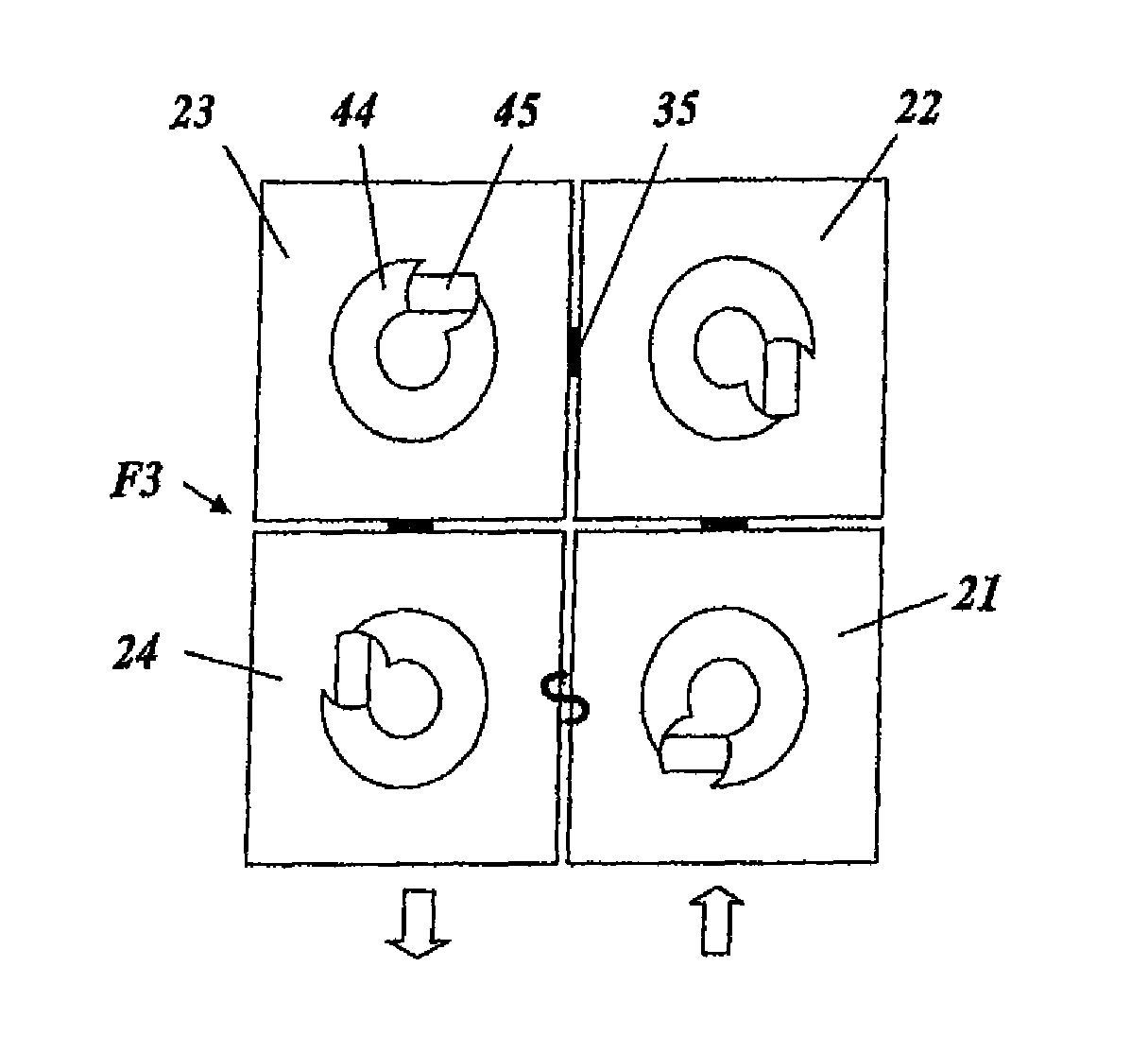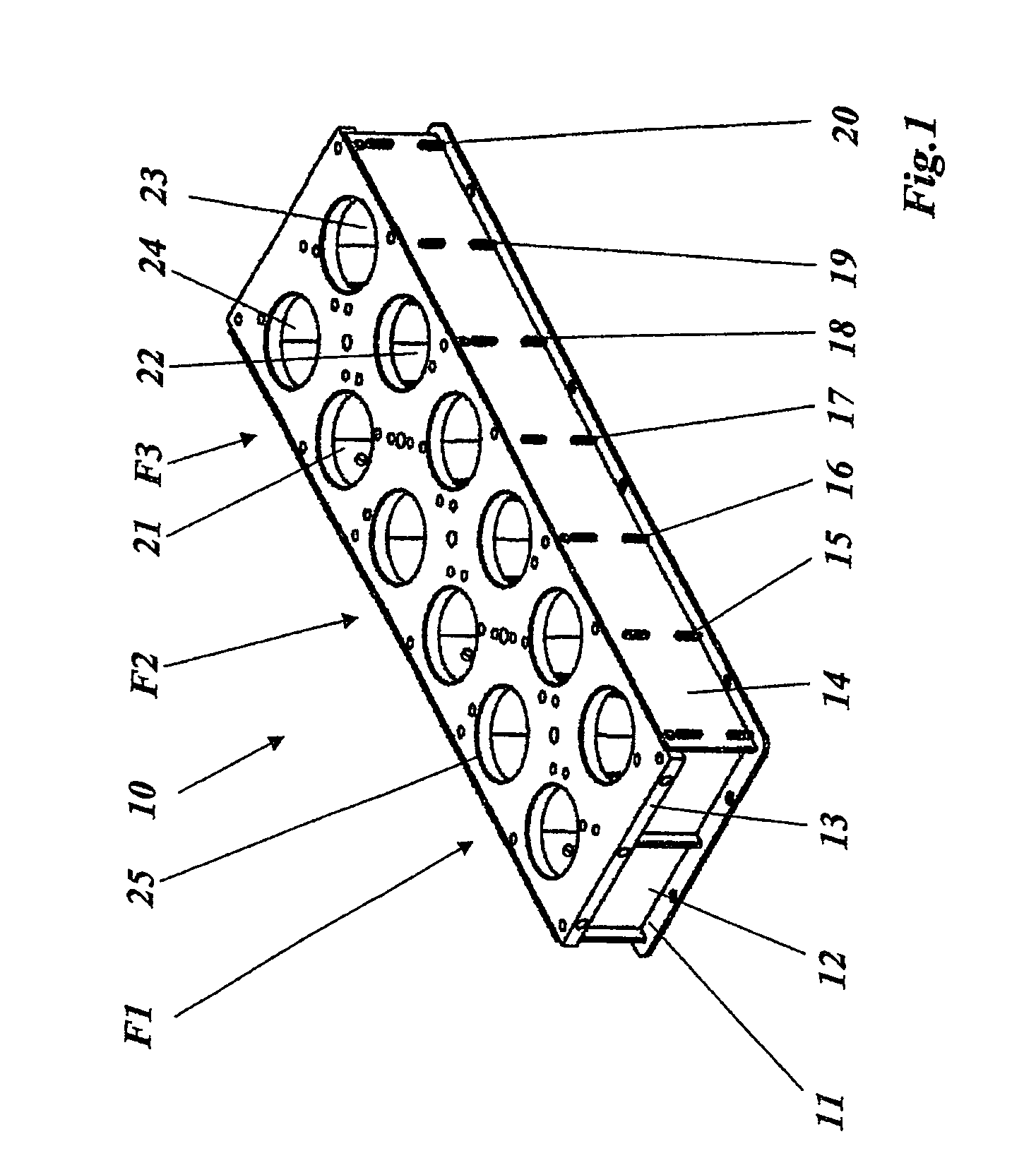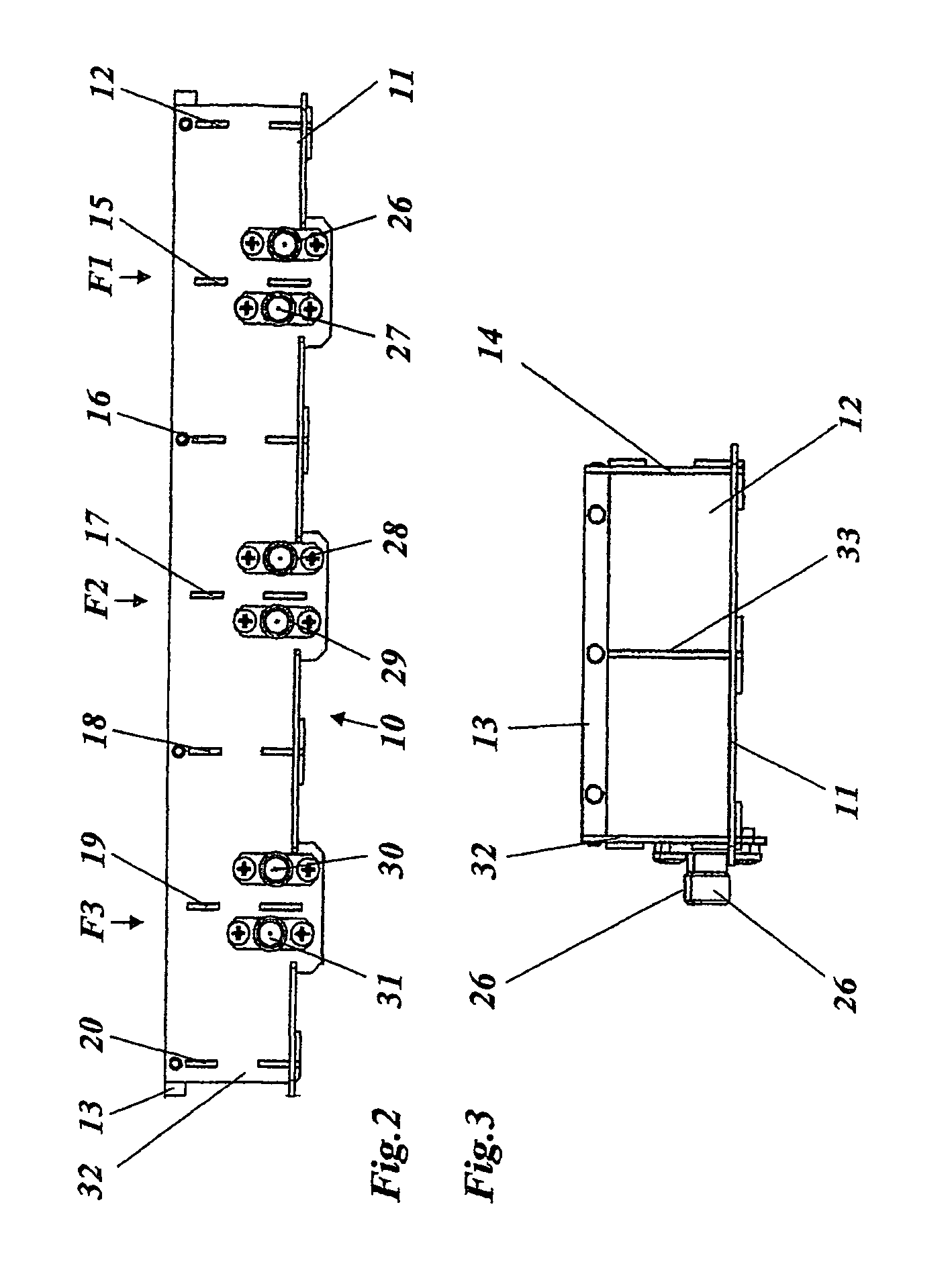Dielectric resonator filter having a tunable element eccentrically located and a method of production thereof
a dielectric resonator and eccentric arrangement technology, applied in the field of radiofrequency engineering, can solve the problems of difficult to achieve the comparatively high accuracy and reproducibility of the disk position, the adjustment mechanism that is required for the linear movement requires a large amount of space, and the feasibility is more than questionable, etc., to achieve cost-effective production, good radio frequency characteristics, and compact and robust design
- Summary
- Abstract
- Description
- Claims
- Application Information
AI Technical Summary
Benefits of technology
Problems solved by technology
Method used
Image
Examples
Embodiment Construction
[0047]The tunable radio-frequency filter arrangement which is described in the following text has a filter housing (10FIG. 1) in which a number of tuning units (40 in FIG. 8) are inserted and are screwed to the motor mounting plate (13 in FIG. 1). The filter housing and the tuning units will be explained separately. The completely assembled filter arrangement is not illustrated, for reasons of clarity.
[0048]The rectangular filter housing (filter box) 10 illustrated in FIG. 1 is composed of a thicker (at the top) motor mounting plate 13 and of a number of sheet-metal parts, which form the base, side walls and (inner) separating walls of the filter housing 10. The sheet-metal parts include the baseplate 11, which is illustrated individually in FIG. 7, the wall plates 12 and 20 (see also FIG. 4) which run in the transverse direction, the wall plates 14 and 32 (FIGS. 1, 2 respectively) which run in the longitudinal direction, the transverse (inner) separating plates 15, 17,19 which are ...
PUM
 Login to View More
Login to View More Abstract
Description
Claims
Application Information
 Login to View More
Login to View More - R&D
- Intellectual Property
- Life Sciences
- Materials
- Tech Scout
- Unparalleled Data Quality
- Higher Quality Content
- 60% Fewer Hallucinations
Browse by: Latest US Patents, China's latest patents, Technical Efficacy Thesaurus, Application Domain, Technology Topic, Popular Technical Reports.
© 2025 PatSnap. All rights reserved.Legal|Privacy policy|Modern Slavery Act Transparency Statement|Sitemap|About US| Contact US: help@patsnap.com



